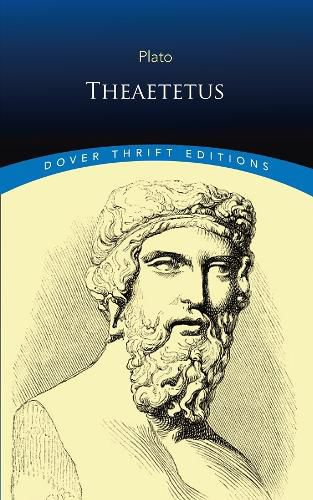Readings Newsletter
Become a Readings Member to make your shopping experience even easier.
Sign in or sign up for free!
You’re not far away from qualifying for FREE standard shipping within Australia
You’ve qualified for FREE standard shipping within Australia
The cart is loading…






What is knowledge? A systematic treatment of this question takes the form of a dialogue between the great philosopher Socrates and his student, Theaetetus. They explore a variety of answers, including knowledge as perception; knowledge as true belief; knowledge as true belief plus an account (i.e., a justified true belief); as well as variations on each of these possibilities. Like most Socratic dialogues, it ends without a definitive answer, leaving the subject open for the reader’s further consideration. One of Plato’s later masterpieces, the Theaetetus poses eternal questions that keep the dialogue relevant not only for students of philosophy but also for every serious reader and thinker. This edition, translated by the noted classical scholar Francis M. Cornford, features extensive commentaries by the interpreter that provide helpful background information and valuable insights. AUTHOR: Plato ranks among the most familiar ancient philosophers, along with his teacher, Socrates, and his student, Aristotle. In addition to writing philosophical dialogues - used to teach logic, ethics, rhetoric, religion, and mathematics as well as philosophy - he founded Athens’ Academy, the Western world’s first institution of higher learning.
$9.00 standard shipping within Australia
FREE standard shipping within Australia for orders over $100.00
Express & International shipping calculated at checkout
What is knowledge? A systematic treatment of this question takes the form of a dialogue between the great philosopher Socrates and his student, Theaetetus. They explore a variety of answers, including knowledge as perception; knowledge as true belief; knowledge as true belief plus an account (i.e., a justified true belief); as well as variations on each of these possibilities. Like most Socratic dialogues, it ends without a definitive answer, leaving the subject open for the reader’s further consideration. One of Plato’s later masterpieces, the Theaetetus poses eternal questions that keep the dialogue relevant not only for students of philosophy but also for every serious reader and thinker. This edition, translated by the noted classical scholar Francis M. Cornford, features extensive commentaries by the interpreter that provide helpful background information and valuable insights. AUTHOR: Plato ranks among the most familiar ancient philosophers, along with his teacher, Socrates, and his student, Aristotle. In addition to writing philosophical dialogues - used to teach logic, ethics, rhetoric, religion, and mathematics as well as philosophy - he founded Athens’ Academy, the Western world’s first institution of higher learning.